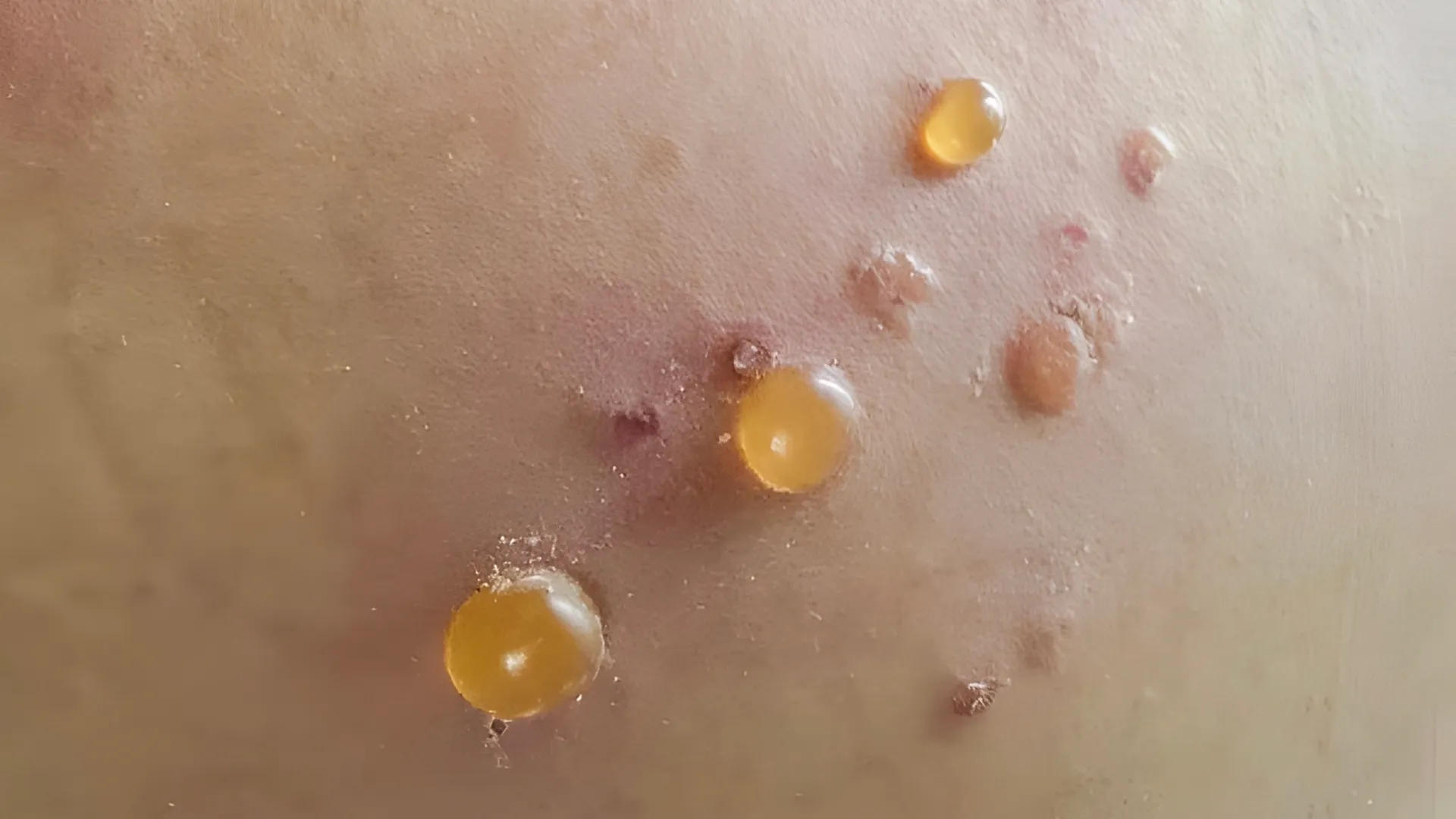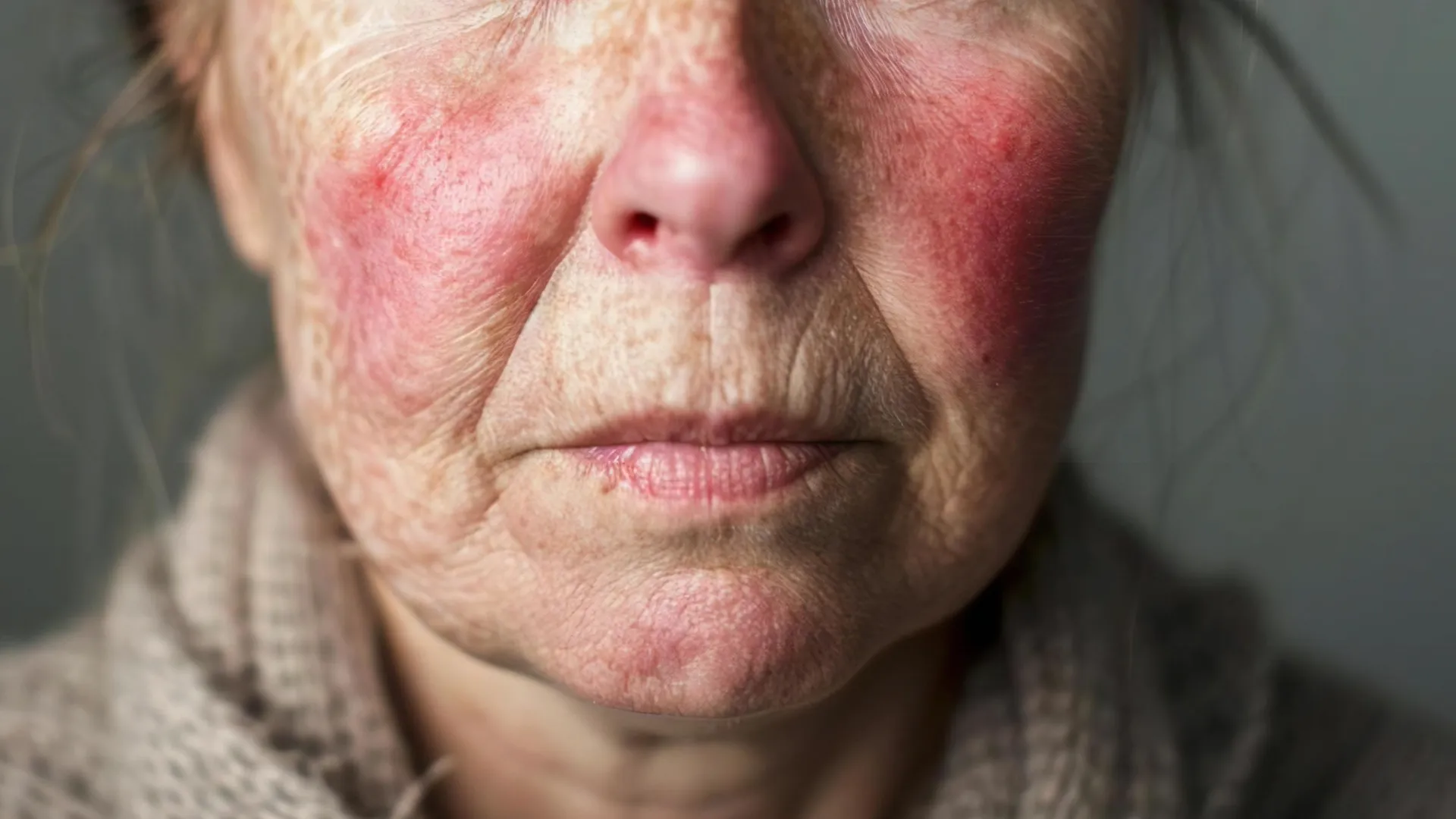Bullous Pemphigoid
Bullous pemphigoid is a rare autoimmune skin disorder primarily affecting older adults, typically those over 60. It is characterized by large, fluid-filled blisters (bullae) that form on the skin due to the immune system mistakenly attacking the basement membrane, which connects the outer skin layer to underlying tissues.
Symptoms
- Blisters: The main feature of bullous pemphigoid is the presence of tense, large blisters that can appear on healthy or inflamed skin. These blisters are often itchy and filled with clear fluid.
- Itching: Many patients experience significant itching, which can precede the formation of blisters.
- Skin Changes: The affected skin may show redness, swelling, and inflammation alongside the blisters.
Causes
The exact cause of bullous pemphigoid remains unclear. It likely involves a combination of genetic factors and environmental triggers. Certain medications can also exacerbate the condition, including:
- Diuretics (e.g., furosemide)
- Antibiotics (e.g., penicillins, sulfonamides)
- Non-steroidal anti-inflammatory drugs (NSAIDs) (e.g., ibuprofen)
- Vaccines
Diagnosis
Diagnosis involves a clinical skin examination and may include:
- Skin biopsy: A sample is taken for microscopic analysis to identify immune deposits.
- Direct immunofluorescence: This test detects specific antibodies in the skin, indicating an autoimmune response.
Treatment
Treatment focuses on alleviating symptoms and promoting healing:
- Corticosteroids: Topical or systemic corticosteroids are commonly prescribed to reduce inflammation and suppress the immune response.
- Immunosuppressants: For more severe cases, medications that suppress the immune system may be recommended (Azathioprine/ Mycophenolate mofetil/ Cyclophosphamide/ Methotrexate).
- Wound care: Proper management of blisters is crucial to prevent infection and facilitate healing.
With effective treatment, most individuals with bullous pemphigoid experience significant improvement.

